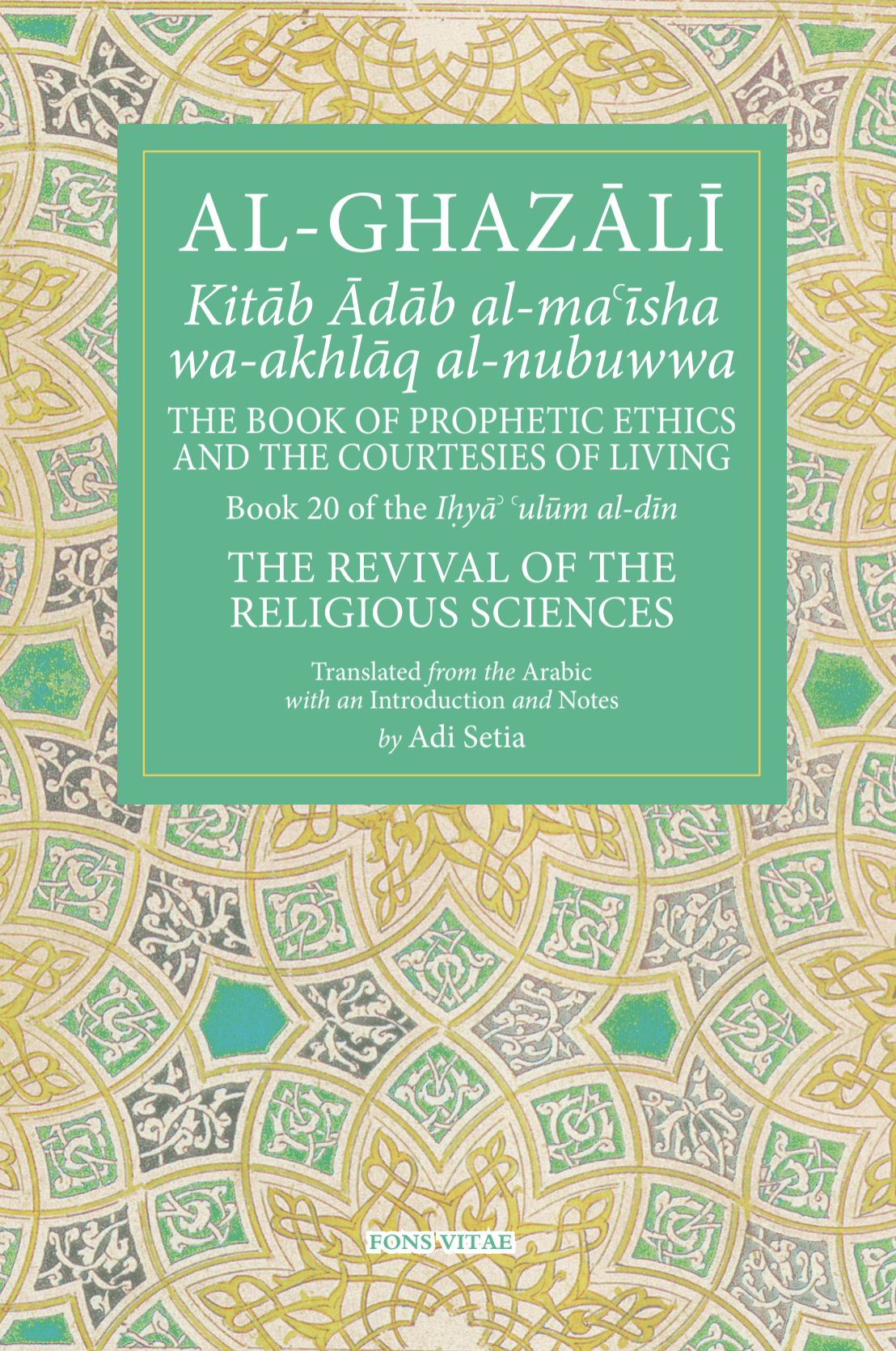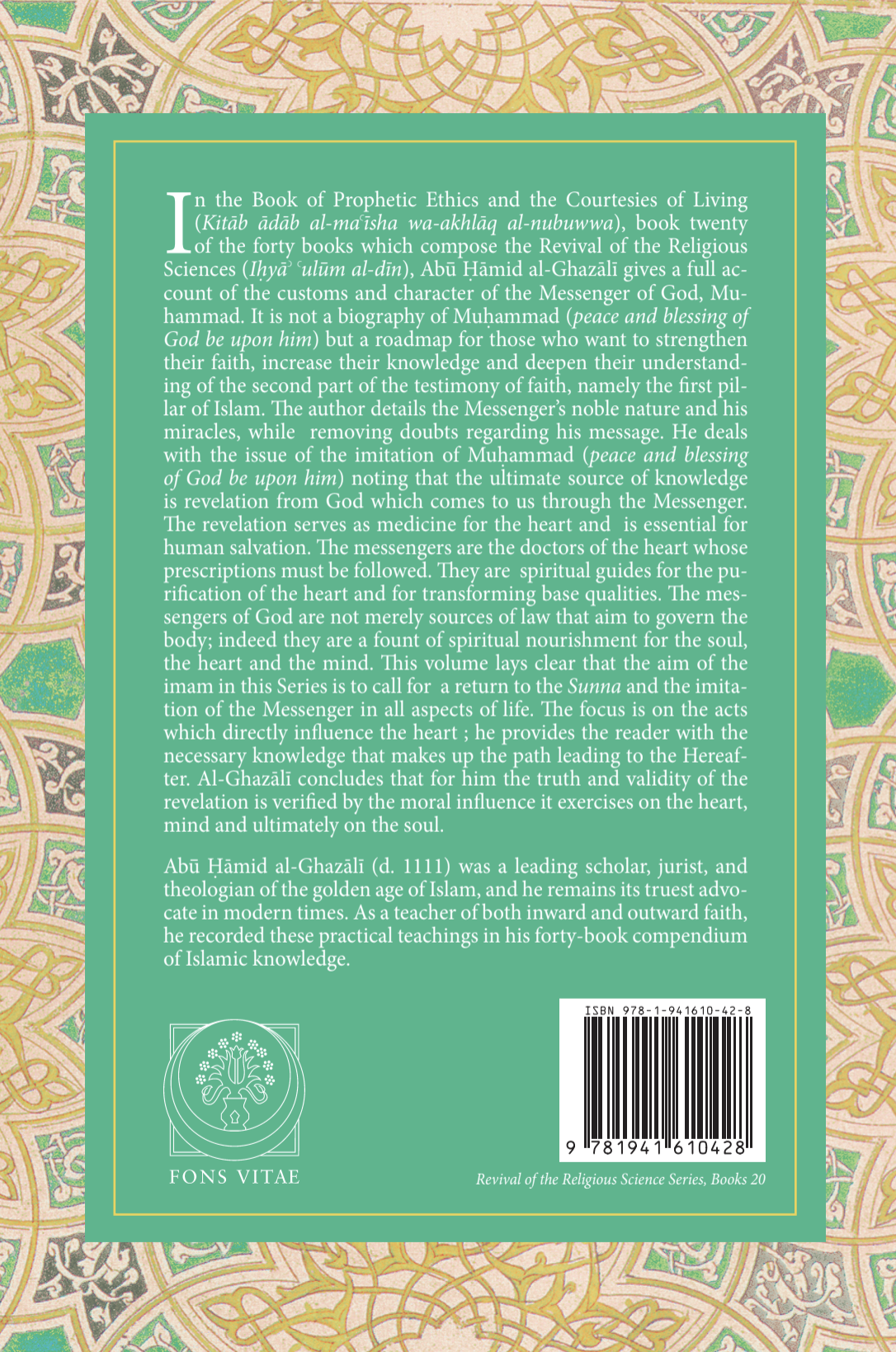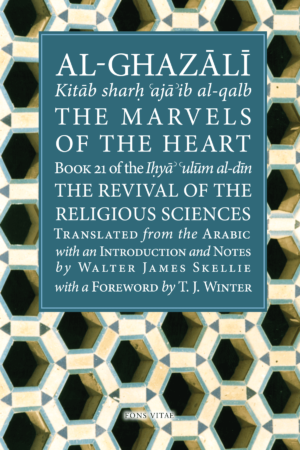In the Book of Prophetic Ethics and the Courtesies of Living (Kitab Adab al ma’isha wa-akhlaq al-nubuwwa), book twenty of the forty books which compose the Revival of the Religious Sciences (Ihya’ ‘ulum al-din), Abu hamid al-Ghazali gives a full account of the customs and character of the Messenger of God, Muhammad. It is not a biography of Muhammad (peace and blessing of God be upon him) but a roadmap for those who want to strengthen their faith, increase their knowledge and deepen their understanding of the second part of the testimony of faith, namely the first pillar of Islam. The author details the Messenger’s noble nature and his miracles, while removing doubts regarding his message. He deals with the issue of the imitation of Muhammad (peace and blessing of God be upon him) noting that the ultimate source of knowledge is revelation from God which comes to us through the Messenger. The revelation serves as medicine for the heart and is essential for human salvation. The messengers are the doctors of the heart whose prescriptions must be followed. They are spiritual guides for the purification of the heart and for transforming base qualities. The messengers of God are not merely sources of law that aim to govern the body; indeed they are a fount of spiritual nourishment for the soul, the heart and the mind. This volume lays clear that the aim of the imam in this Series is to call for a return to the Sunna and the imitation of the Messenger in all aspects of life. The focus is on the acts which directly influence the heart ; he provides the reader with the necessary knowledge that makes up the path leading to the Hereafter. Al-Ghazali concludes that for him the truth and validity of the revelation is verified by the moral influence it exercises on the heart, mind and ultimately on the soul.




